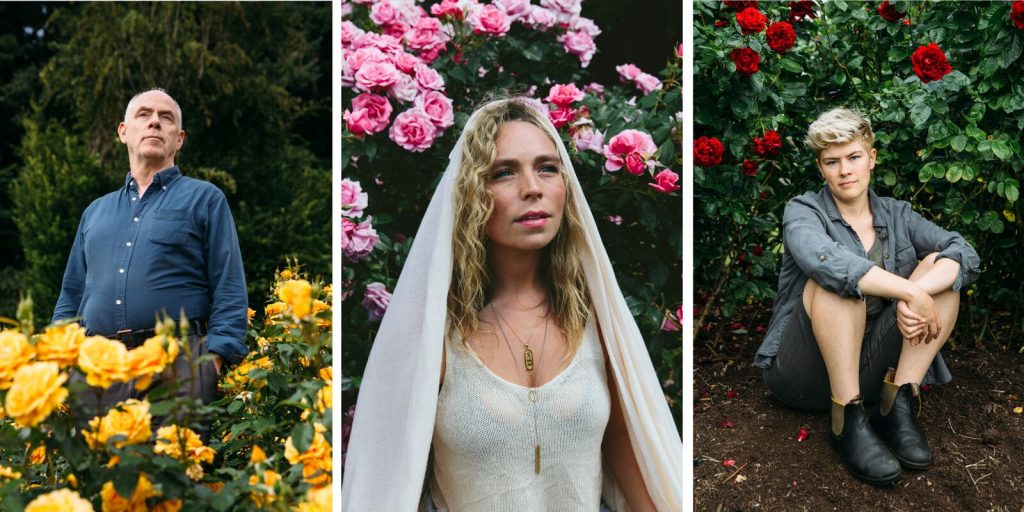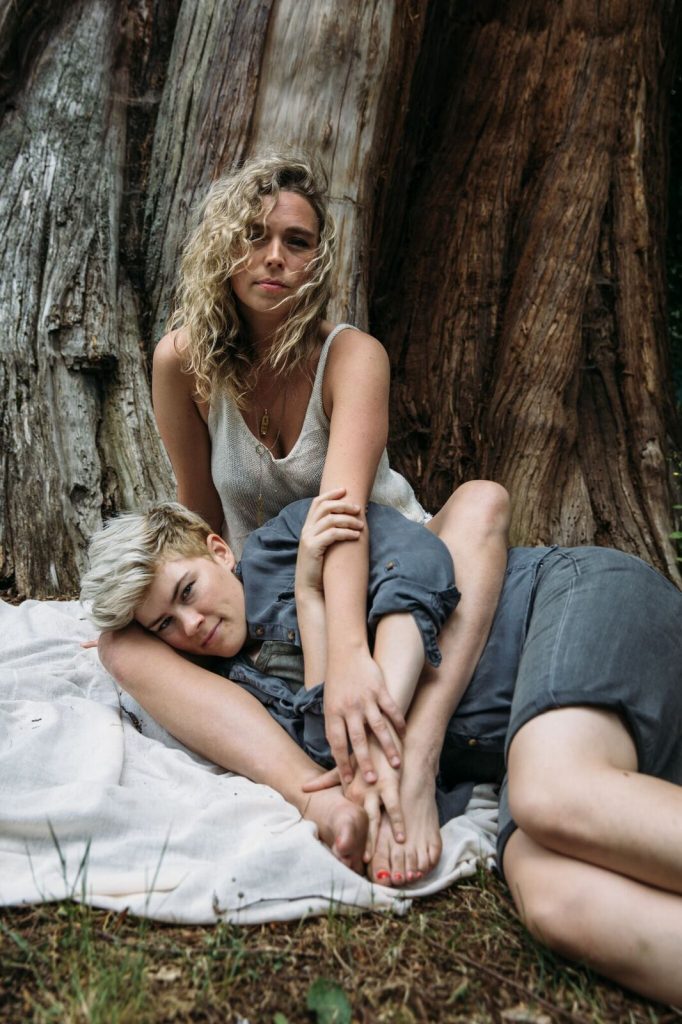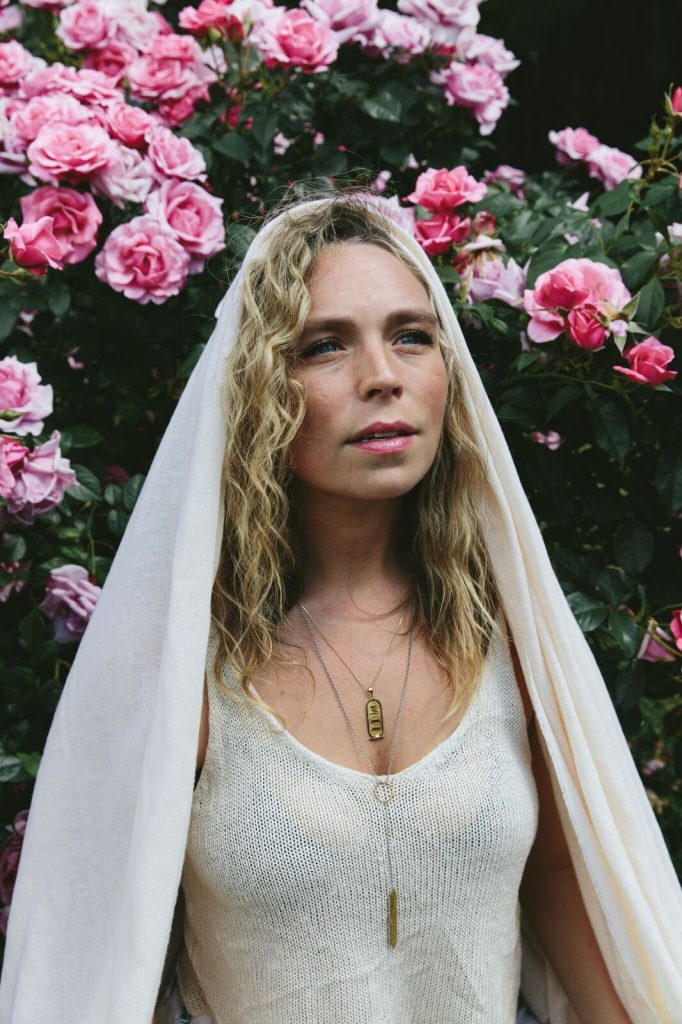
Credit: Jackie Dives
At The Cultch to July 21; then July 23, 25-28
Tickets from $20 at tickets.thecultch.com or 604-251-1363
Posted July 19, 2018
It’s amazing, really, how well young playwright James Gordon King gets into the head of Brian (David Bloom), a middle-aged playwright who has pulled up stakes, moved out of the city to a small, waterfront community (sounds like Squamish) and is living out of boxes while he works on his latest play. Brian is convinced he’s making a fresh start, is reconnecting with Nature and that the play he’s been working on for years will be his best.
But when Alison (Olivia Hutt), his daughter, comes visiting/holidaying from Toronto with her lover Maddie, what she sees in her father is a sort of ridiculous, self-absorbed, marijuana-growing, nudging-his-best-before-date, old fart.
Maddie (Sara Vickruck), a completely straight-shooting, not too complicated, fun loving young woman, right away gets along famously with Brian, joining him in cannabis oil-laced hors d’oeuvres. She listens to him and has fun with him the way Alison does not.
At Brian’s suggestion, the three of them do a cold reading of the play he’s working on – a sort of allegory based on an obscure Greek tragedy. Alison could be right: Brian might well be deluding himself. Euripides he is not. Nor is he Shanley, Mamet, Tom Stoppard or any of the great contemporary playwrights.
But he is coping – and at some point in our lives, that’s heroic. Young playwright King gets that. And so does actor Bloom (who ruefully claims he has found himself auditioning with some of his Studio 58 students – for the same role!)
Alison is a little harder to understand. If the play-within-a-play means anything – and it’s hard to say just what – perhaps Brian has always been unavailable to Alison, that he has ‘masked’ himself from her because of his dedication to his ‘art’ or what she mockingly refers to as “turning his life into art”. What is clear is that Alison deeply loves her father but, at the same time, is deeply frustrated by him: why is he living out of boxes, why doesn’t he get his life together, is he really working on a play that has any real value? Why doesn’t he try to lead a normal life? Be with people? She may even resent Maddie’s quick and easy acceptance of him.

Credit: Jackie Dives
Hutt and Vickruck make it obvious that these two young women love each other. Nice energy flows between them: emotionally and sexually – although there’s way, way, way too much kissing. We get it; they turn each other on. Maddie and Alison also support each other in the changes that are coming in their lives: Alison has become disenchanted with her acting career and Maddie is considering selling her catering business after five years of seventy-hour weeks and tens of thousands of dollars.
Everyone is in flux. Maddie puts her finger on it: if she sells the business, who will she be? “You’ll be Maddie”, says Alison. “But who am I?” responds Maddie?
If Alison stops acting, who will she be? And if Brian stops writing, who will he be? “We have this belief that our work will save us. But it won’t”, says Alison. “None of it will matter.” So where does that lead us?
King packs a lot into the script and it needs a clearer focus. But under the direction of Marie Farsi for Babelle Theatre, the performances are terrific: Vickruck is such a natural performer; she makes it all look so easy and we warm to Maddie right away. Her character is butchy, energetic and open-hearted. She’s like a young pup. Hutt has the harder job making Alison likeable; we don’t really understand why she can’t be around her father anymore. Perhaps that’s because Bloom makes Brian so wry and amiable and easy-going, it’s difficult to comprehend her problem with him. Granted, he is critical of her decision to leave the theatre. She wants to be “realistic”, Alison tells him, to which he replies, “You were not born to be realistic. We are not realistic.” Alison goes off in a huff.

Credit: Jackie Dives
This, Here left me Out, There quite a bit of the time. What is this young playwright really getting at? But it sparked a long conversation on the way home and I think King touches upon something quite profound: perhaps more than death, we fear becoming ridiculous or useless. Alison feels the need to apologize to Maddie for her father. We strive in our way, as does Brian, to remain vital and connected as we age. But while we struggle to remain independent we know the wheel turns and our children – if we have them – will end up being our caregivers. What loving parent wants to burden their children with that?
There is something of this in This, Here. Alison’s “I can’t be around him anymore” is followed immediately by, “I can’t help him anymore.” And there’s the bind, the push and pull where aging parents and adult children end up: loving, frustrating, angering, disappointing, embarrassing yet needing each other.
I don’t know if James King meant us to go there in This, Here but that’s where I went. Maybe it was because of a recent birthday or the heat that caused a friend to claim she suffered from “nauseated lassitude”. Whatever the reason, such a post-show, homeward bound, introspective conversation turned out to be a revelation.

